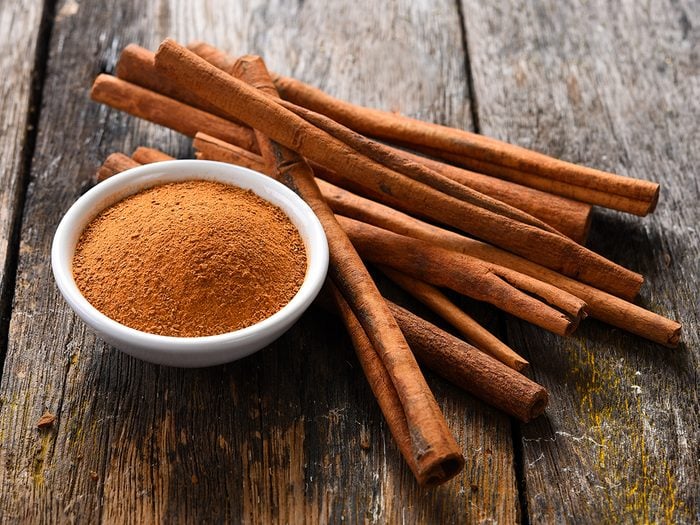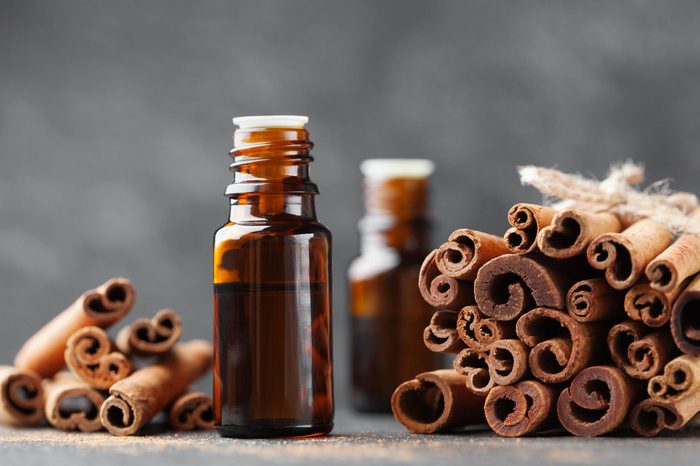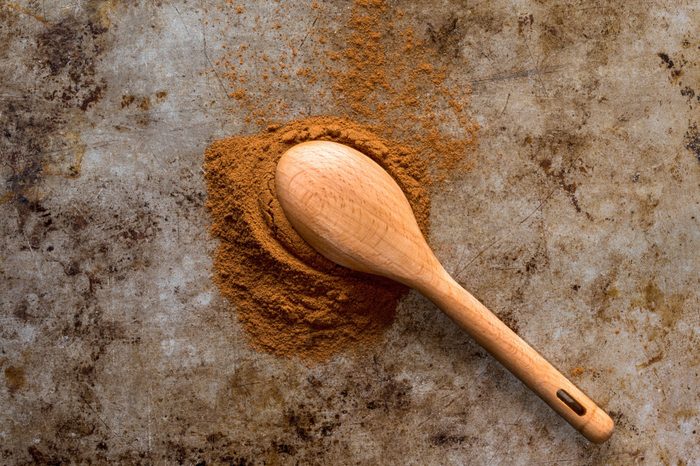
The surprising health benefits of cinnamon
Cinnamon works well in all different kinds of recipes and dishes. However, there are more reasons besides flavour to use it in your cooking. There are potential health benefits of cinnamon and those are mostly thanks to antioxidants, according to Hillary Cecere, RDN, a registered dietitian for Eat Clean Bro. These antioxidants and polyphenols may support overall health by protecting the body from oxidative damage due to harmful free radicals, says Malina Malkani, RDN, creator of the Wholitarian Lifestyle.

A word of caution
Cecere notes that not all cinnamon has the same nutritional value. There are two main types: Ceylon and Cassia cinnamon. Cassia is more affordable and popular than Ceylon, but Ceylon is safer in larger quantities. Although research shows cinnamon positively influences many health conditions, more research is necessary. And Alyssa Pike, RD, the manager of nutrition communications for the International Food Information Council, adds that cinnamon should not substitute other healthy foods, habits, or medication (when appropriate). But you can happily sprinkle some for these potential health benefits.

Cinnamon might reduce inflammation
Some research shows the antioxidants in cinnamon may also be anti-inflammatory. So cinnamon could be beneficial for pain, muscle soreness, and swelling, Cecere says.
Here’s expert advice on finding relief from everyday aches and pains.

Cinnamon could reduce the risk of heart disease
Malkani says that cinnamon may influence factors related to heart disease, but there isn’t enough clinical evidence to know for sure. One review study found that 120 mg of cinnamon per day could improve LDL cholesterol, triglyceride levels, and total cholesterol, Cecere says. Another study found that people with diets high in spices like cinnamon and turmeric who ate fatty meals saw a decrease in triglycerides.
Find out how it’s actually possible to reverse heart disease.

Cinnamon may improve insulin sensitivity
Insulin resistance, or when the body responds poorly to insulin, is linked to other health issues like type 2 diabetes and metabolic syndrome. “Studies have shown improvements in glycemic control with cinnamon in people with diabetes,” Cecere says. “Cinnamon not only reduces blood sugar but also improves sensitivity to insulin.” Eating cinnamon with a high-carb meal could help prevent blood sugar spikes, according to Cecere. But Malkani and Kris Sollid, RD, the senior director of communications for the International Food Information Council, note that cinnamon should not be the primary strategy or long-term treatment for controlling blood sugar levels, as there needs to be more research.
Check out the latest research on how to beat diabetes.

Cinnamon extracts could help protect against cancer
The high amount of antioxidants in cinnamon could protect against DNA damage and cell mutations associated with cancer, Cecere says. However, Pike notes that the current research is only on animals and test-tube studies. “Further research in humans is needed to provide clinical evidence for the traditional uses of cinnamon against cancer,” she says.
Here are 29 more foods that may help prevent cancer.

Cinnamon is good for fighting certain infections
Cinnamon oil has antibacterial and antimicrobial properties that may help fight infections, according to Cecere. Cinnamaldehyde is one of the main active components of the spice that protects against infection, Pike says. Still, there needs to be more research on the types of infections cinnamon could reduce. Research suggests it may prevent the growth of bacteria like listeria and salmonella, and could be an effective treatment against yeast infections.
Discover eight science-backed strategies to boost your immune system.

Cinnamon is good for your oral health
Thanks to the antimicrobial effects of cinnamon, the spice could be good for your oral health. A review of the research on cinnamon published in the journal Nutrients points out that the spice can help prevent tooth decay and bad breath.

Bottom line: Cinnamon is a great addition to your diet
Cecere, Pike, Sollid, and Malkani all agree that there needs to be more human research on the extent of the health benefits of cinnamon. Some early research suggests cinnamon might also have positive effects on multiple sclerosis, HIV, and Alzheimer’s disease, among others. But what is cinnamon good for? It’s good for sprinkling on food as a safe way to boost the antioxidants in your diet. It shouldn’t be the main treatment for health issues thanks to a lack of human research, but eating it certainly won’t hurt. Plus, the delicious flavour pairs well with many types of produce and could encourage you to eat more fruits and vegetables.
Next, find out the healthiest fruits you can eat.